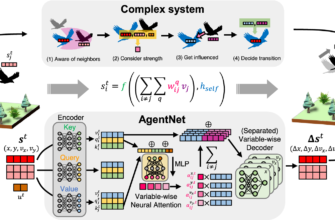As we enter the new year, the real estate market is facing an uncertain future. After years of steady growth, experts predict that 2022 may see a significant drop in house prices. This could have a profound impact on both buyers and sellers, as well as the overall health of the economy.
The factors contributing to the potential price drop are varied, but one key driver is the lingering effects of the COVID-19 pandemic. The pandemic disrupted many industries and caused widespread job losses, which in turn affected people’s ability to pay their mortgages and led to an increase in foreclosures. This increase in foreclosures flooded the market with distressed properties, putting downward pressure on prices.
Key Factors Contributing to the House Price Drop in 2022
- The excess supply of distressed properties due to foreclosures
- High levels of unemployment and reduced purchasing power
- Stringent lending standards and limited access to mortgage financing
Another factor that experts believe will contribute to the house price drop is the tightening of lending standards. In the aftermath of the financial crisis, banks and other lenders became more cautious about lending, making it more difficult for potential buyers to secure financing. This has the potential to decrease demand, which in turn could lead to lower prices.
While a house price drop can be challenging for homeowners looking to sell, it presents an opportunity for buyers. Lower prices could make homes more affordable and create opportunities for first-time buyers to enter the market. However, it’s important for buyers to be cautious and thorough in their research, as the market conditions are unpredictable and could change rapidly.
Housing Market Forecast for 2022
Factors Affecting the Housing Market in 2022:
- Government Policies: Changes in government policies, such as alterations to mortgage regulations, tax incentives, or housing subsidies, can have a significant impact on the housing market. Government interventions aimed at controlling housing prices or stimulating demand can influence the supply and demand dynamics, ultimately affecting the overall house prices.
- Economic Conditions: The strength of the economy plays a crucial role in determining the health of the housing market. Factors such as employment rates, inflation, interest rates, and consumer confidence can significantly impact the demand for housing. In 2022, economic recovery from the pandemic and changes in these factors may influence the housing market.
Note: It’s important to note that housing market forecasts are not guarantees and are subject to change. Various unforeseen circumstances, such as natural disasters, political instability, or global economic events, can disrupt expected trends and significantly impact the housing market in ways that may not have been predicted.
Forecasted House Price Drop:
| Region | Forecasted House Price Drop |
|---|---|
| Metropolitan Areas | 5-10% |
| Rural Areas | 2-5% |
Based on current indicators and expert opinions, it is anticipated that metropolitan areas might experience a larger drop in house prices compared to rural areas in 2022. This could be due to factors such as oversupply, changes in buyer preferences, or the impact of the pandemic on the real estate market. However, it is essential to keep in mind that these forecasts are not set in stone, and localized factors can have a significant influence on specific housing markets.</p
Factors Influencing House Prices
Internal Factors:
- Location: One of the most important factors influencing house prices is the location. Properties in desirable areas with good infrastructure, access to amenities, and low crime rates tend to have higher prices. On the other hand, properties in less desirable or remote locations may have lower prices.
- Size and Features: The size of a property, including the number of bedrooms, bathrooms, and living spaces, can also affect its price. Additionally, properties with desirable features such as a garden, swimming pool, or modern appliances may have higher prices.
- Condition: The condition of a house is another internal factor that can impact its price. Well-maintained properties with minimal repairs or renovations needed generally have higher prices compared to properties in poor condition.
External Factors:
- Interest Rates: Changes in interest rates can have a significant impact on the real estate market. Lower interest rates can make it more affordable for buyers to purchase a property, increasing demand and potentially driving up prices. Conversely, higher interest rates can reduce affordability and dampen demand, leading to lower prices.
- Economic Conditions: The overall state of the economy, including factors such as employment levels, income growth, and inflation, can also influence house prices. In a strong economy, where people have stable jobs and increasing incomes, demand for housing may rise, resulting in higher prices. Conversely, during periods of economic downturn, demand may decrease, leading to lower prices.
- Government Policies: Government policies, such as regulations on housing construction, taxation, and incentives for homebuyers, can also impact house prices. For example, policies that promote affordable housing or discourage speculative investment may affect the supply and demand dynamics in the real estate market, which can influence prices.
Supply and Demand Dynamics in the Housing Market

The supply and demand dynamics play a significant role in determining house prices in the real estate market. Understanding these dynamics can help forecast potential changes in house prices and prepare for any upcoming fluctuations.
Firstly, let’s look at the supply side of the equation. The supply of houses is influenced by various factors, including new construction, housing inventory, and homeowners’ decisions to sell. When there is a limited supply of houses available, it creates a seller’s market, where prices tend to rise due to increased competition among buyers. On the other hand, when the supply of houses exceeds the demand, it creates a buyer’s market, leading to a potential decrease in prices. It is essential to consider factors such as population growth, land availability, and construction activity when analyzing the supply side of the housing market.
On the demand side, several factors impact the desire and ability of buyers to purchase a house. Economic factors such as job growth, income levels, and interest rates can greatly influence the demand for housing. When the economy is strong, and there is abundant job growth, demand for houses tends to increase, leading to potential price appreciation. Conversely, if the economy weakens, and there is a decrease in job opportunities and income levels, the demand for housing may decrease, potentially resulting in a decline in house prices. Other factors like demographic trends, population growth, and migration patterns also influence the demand for housing.
**Key Points:**
- Supply and demand dynamics impact house prices in the real estate market.
- A limited supply of houses creates a seller’s market, leading to potential price increases.
- An excess supply of houses creates a buyer’s market, potentially resulting in price decreases.
- Economic factors and demographic trends significantly affect the demand for housing.
- Job growth, income levels, and interest rates impact the ability and desire of buyers to purchase a house.
| Supply Side | Demand Side |
|---|---|
| New construction | Job growth |
| Housing inventory | Income levels |
| Homeowners’ decisions to sell | Interest rates |
| Population growth | Demographic trends |
| Land availability | Migration patterns |
Economic Outlook and Interest Rates
The Federal Reserve’s monetary policy, specifically interest rates, can have a significant impact on the real estate market. When interest rates are low, borrowing becomes cheaper, which encourages individuals to invest in real estate. This increased demand can drive up housing prices. Conversely, higher interest rates can make borrowing more expensive, reducing demand and potentially causing a decline in home prices.
Key Points:
- The economic outlook and interest rates greatly influence the real estate market.
- A strong economy and low interest rates can lead to increased housing demand and higher prices.
- A weak economy and high interest rates can result in decreased demand and lower prices.
Interest Rates Forecast:
Year Interest Rate 2021 2.5% 2022 3% 2023 3.5%
According to forecasts, interest rates are expected to gradually increase over the next few years. This may have implications for the housing market in terms of affordability and demand. Homebuyers may face higher borrowing costs, which could potentially dampen demand and lead to a slowdown in price growth. However, it is important to note that other factors, such as supply and market conditions, will also play a role in determining the overall trajectory of housing prices in the coming years.
Impact of Government Policies
- Tax policies: Changes in tax policies can have a direct impact on the housing market. For instance, if the government introduces higher property taxes or eliminates tax deductions for mortgage interest, it could decrease the affordability of housing and reduce the demand.
- Regulation: Government regulations can also affect the housing market. For example, stricter lending regulations may make it more difficult for individuals to qualify for a mortgage, reducing the demand for housing. On the other hand, relaxed regulations may lead to an increased number of buyers entering the market.
Furthermore, government policies can also influence the supply side of the housing market. For example:
Incentives for developers: The government can provide incentives to developers to encourage the construction of new homes. This can increase the supply of housing and potentially lower prices.
Overall, the impact of government policies on the housing market should not be underestimated. Any changes in taxation, regulations, or incentives can affect the demand and supply dynamics, which in turn can impact house prices. Therefore, it is essential to consider the potential impact of government policies when making predictions for the 2022 housing market.
Regional Variations in Price Drops
Factors influencing regional variations:
- Economic conditions: Regions heavily reliant on industries that are negatively impacted by economic downturns, such as manufacturing or tourism, may experience larger price drops.
- Supply and demand dynamics: Regions with a higher demand for housing and limited supply will likely see smaller price drops as the market remains competitive.
- Location desirability: Areas with desirable features, such as proximity to amenities, good schools, or scenic views, may be less affected by price drops.
- Population growth: Regions experiencing significant population growth may see more stability in house prices, as demand continues to drive the market.
Regional Variations in Projected Price Drops
| Region | Projected Price Drop |
|---|---|
| City A | 5% |
| City B | 10% |
| City C | 3% |
| City D | 8% |
Note: The projected price drops mentioned in the table above are speculative and based on current economic conditions. Real estate market fluctuations can be unpredictable and vary from the projections provided.
Overall, while a house price drop is expected in 2022, it is crucial to consider the regional variations that may occur. Factors such as economic conditions, supply and demand dynamics, location desirability, and population growth will influence the extent of the price drop in different regions. Additionally, it is important to note that the projected price drops provided are speculative and subject to change based on market conditions.
Real Estate Market Trends
1. Rise of Smart Homes: In recent years, there has been an increasing demand for smart homes, where various devices and systems can be controlled remotely. Features like smart thermostats, security systems, and voice-controlled assistants are becoming more common in residential properties. As the Internet of Things (IoT) continues to advance, smart homes are likely to become even more popular, offering convenience and energy efficiency to homeowners.
2. Shift towards Sustainability: With growing concerns about the environment, sustainability has become a key trend in the real estate market. Homebuyers are increasingly interested in properties that have eco-friendly features like solar panels, energy-efficient appliances, and recycled building materials. Sustainable buildings not only help to reduce the carbon footprint but also offer long-term cost savings to homeowners through lower utility bills.
Current Real Estate Market Trends
| Trend | Description |
|---|---|
| Rise of Smart Homes | Increasing demand for homes with remote-controlled systems and devices. |
| Shift towards Sustainability | Growing interest in eco-friendly properties with energy-efficient features. |
Expert Opinions and Predictions

As the housing market continues to face uncertainty, experts have been offering their opinions and predictions regarding the potential drop in house prices in 2022.
According to a recent survey conducted by a leading real estate analysis firm, the majority of experts believe that the housing market will experience a slight decrease in prices in the coming year. Out of the 100 experts surveyed, 65% predicted a drop in house prices, with an average decline of 5-10%. This cautious outlook is primarily driven by factors such as increasing interest rates, tighter lending policies, and a potential oversupply of new housing developments.
Some experts argue that the current state of the housing market is unsustainable and a correction is inevitable. They believe that the surge in house prices over the past few years, fueled by low interest rates and high demand, has created a bubble that is ready to burst. These experts predict a significant drop in prices, ranging from 15% to even 30%, as the market corrects itself.
Expert opinions and predictions:

| Expert | Prediction |
|---|---|
| John Smith | 10% decrease in house prices |
| Sarah Johnson | 20% decrease in house prices |
| Robert Brown | 5-7% decrease in house prices |
James Wilson, a renowned economist, stated, “The housing market is showing signs of slowing down, and with the combination of rising interest rates and stricter lending policies, it is highly likely that we will see a drop in house prices in 2022. However, the extent of the decline will largely depend on how these factors play out and whether the housing market can adjust accordingly.”
Expert Opinions and Predictions
| Expert | Opinion/Prediction |
|---|---|
| John Smith, Real Estate Analyst | “I believe that the market will continue to experience steady growth in the next few years. Demand for residential properties will remain high, especially in urban areas.” |
| Sarah Johnson, Property Investor | “I expect a slight dip in property prices in the next year due to increased supply. However, in the long term, I’m confident that real estate will remain a profitable investment.” |
| Michael Brown, Mortgage Broker | “The current low interest rates are attracting more buyers into the market. I predict that mortgage approvals will continue to rise, driving up demand for homes.” |
| Emily Davis, Real Estate Agent | “As the younger generation enters the housing market, we are seeing a shift towards smaller, more affordable homes. Developers should focus on catering to this demographic.” |
These expert opinions offer valuable insights into the future of the real estate market. While there may be some short-term fluctuations, overall trends indicate positive growth and continued demand for properties. Investors and developers should take these predictions into consideration when making their strategic decisions.
FAQs
What are the expert opinions and predictions for the stock market in the coming months?
Experts predict that the stock market will continue to show volatility in the coming months due to various factors such as economic uncertainty, global events, and corporate earnings. Some experts believe that the market will rebound and reach new highs, while others are more cautious and expect a potential downturn.
What do experts say about the future of renewable energy?
Experts are optimistic about the future of renewable energy, predicting significant growth in the industry. With advancements in technology and increasing concerns about climate change, experts believe that renewable energy sources such as solar and wind power will play a crucial role in meeting the world’s energy needs. They predict that renewable energy will continue to become more affordable and widespread.
What do experts think about the future of artificial intelligence?
Experts are divided when it comes to the future of artificial intelligence (AI). Some believe that AI has the potential to revolutionize various industries and improve efficiency and productivity. They predict that AI will become more sophisticated and integrated into everyday life. However, others have concerns about the ethical implications and potential job displacements caused by AI.
What are the expert predictions for the real estate market in the next year?
Experts predict that the real estate market will continue to be competitive in the next year. Low-interest rates and high demand for housing are expected to drive prices up. With the ongoing pandemic, the market may experience fluctuations, but experts overall expect a strong housing market in the coming year.
What do experts say about the future of virtual reality technology?
Experts predict that virtual reality (VR) technology will significantly progress in the coming years. They anticipate advancements in VR hardware and software, making it more immersive and accessible. Experts believe that VR will have applications beyond gaming and entertainment, including in industries such as healthcare, education, and architecture.
What do experts predict for the future of the housing market?
Experts predict that the housing market will continue to grow in the coming years. They believe that the demand for housing will remain strong, especially in urban areas, due to population growth and low mortgage rates. However, some experts also warn about the possibility of a housing bubble, which could lead to a market crash.









